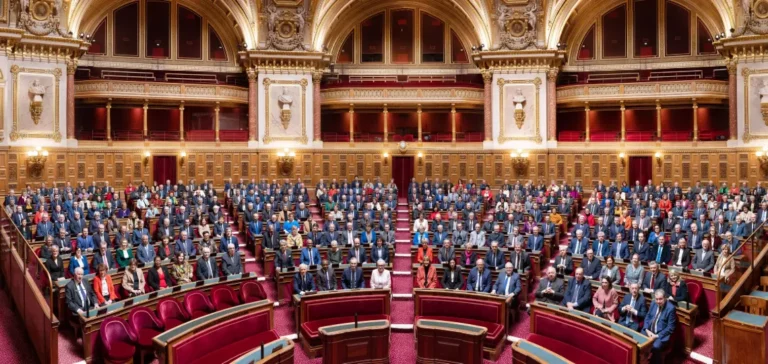The French Senate adopted in the second reading, by 221 votes to 24, the bill on national programming and normative simplification in the energy sector. This bill, presented by Daniel Gremillet, Dominique Estrosi Sassone, and several of their colleagues, is designed to support France’s energy transition, in the context of the absence of a five-year energy programming law. This law was to be adopted before July 1, 2023, according to the forecasts of the “Energy-Climate” law of 2019.
The text aligns with European objectives to reduce greenhouse gas emissions and aims to promote the decarbonization of energy production and consumption, with a focus on nuclear power, hydroelectricity, and bioenergy. One of the priorities of this proposal is to strengthen the French nuclear sector by maintaining the nuclear mix at least two-thirds by 2030 and mostly by 2050.
Specific goals for the energy sector
The objectives of the text are particularly detailed for key sectors. Regarding nuclear power, the law provides for the creation of 27 gigawatts (GW) of new nuclear capacity by 2050, including 14 EPR2 reactors and one small modular reactor (SMR) by 2030. A potential for six additional reactors could be added in the event of reindustrialization.
For renewable energies, ambitious goals are set, including the addition of 50 GW of photovoltaic capacity and 29 GW of hydroelectricity by 2035. The hydrogen sector is also a focus, with a target of 6.5 GW by 2030. Regarding energy renovation, the law plans for 900,000 renovations per year from 2030 onwards, supported by the MaPrimeRénov’ program.
Modifications made in the second reading
In the second reading, the Senate decided to refocus the text on its programmatic component while retaining key measures regarding the simplification of standards for nuclear projects. The text also maintains consumer protection measures.
In response to concerns raised by the National Assembly, the Senate integrated some modifications regarding renewable energies, notably maintaining the set objectives while addressing the issues raised. Concerning onshore wind projects, a moratorium proposed by the National Assembly was dismissed, although the Senate maintained a more flexible approach, encouraging the renewal of existing installations rather than the construction of new ones.






















